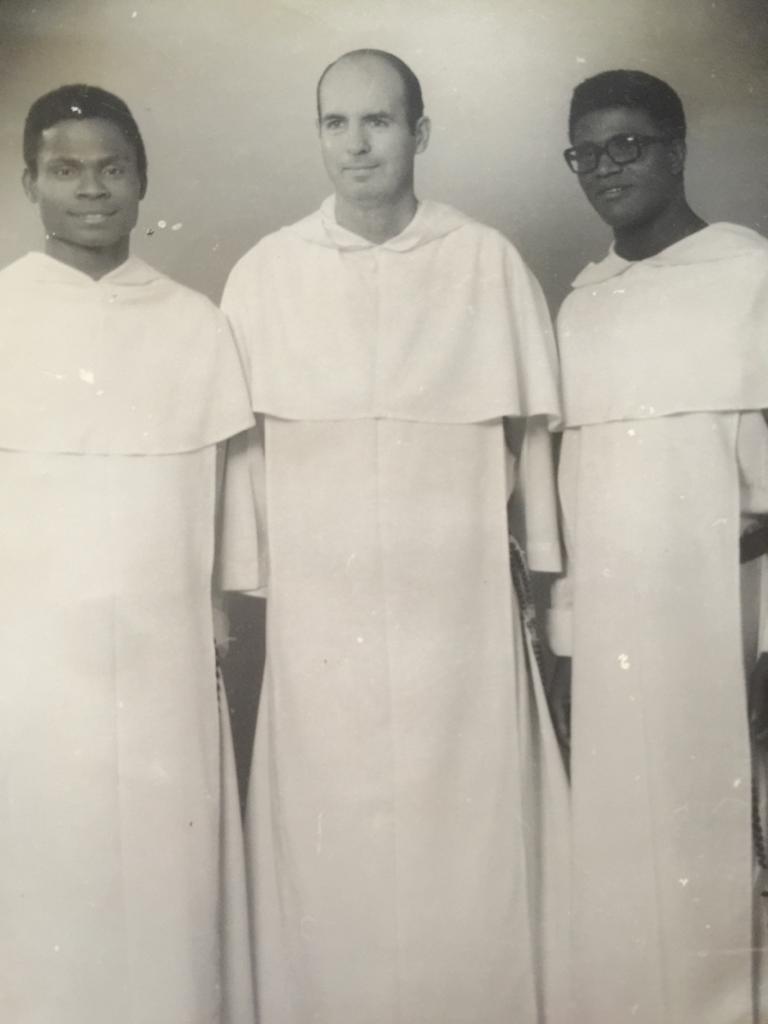The most important question we need to ask ourselves is: how best are we to love God above all things and how best are we to love our neighbor in our community life and apostolic life?The question goes to the very heart of our Christain vocation: How do I love? how do we love? Every other question is secondary and must be related to this primary question.
MODERN PENTECOSTALISM AND ITS SEDUCTIVE INFLUENCE ON SOME CATHOLIC FAITHFUL
This paper aims at discussing the seductive influence neo-Pentecostalism has on some Catholic faithful who sometimes abandon their Catholic faith to embrace the neo-pentecostal beliefs. I plan to reflect on this by first examining the theology of neo-Pentecostalism. If I am able to do this, there will be no need to raise baffling questions about why some Catholics consider neo-Pentecostal spirituality attractive and worth embracing. We must not fail to point out the truth that saves: the “winner” theology which is propagated in neo-Pentecostal circles is a huge religious deception. The paramount interest of all in the Pentecostal movement is the reception and exercise of spiritual gifts, especially the experience of ‘glossolalia’, which, for them functions as a sign of the indwelling presence of the Holy Spirit in the believer; it is one way by which the Holy Spirit affirms his abiding presence and assures the believer of an invigorated living true witness.
The early Pentecostals:
original vision and thrust According to the movement's history, the early Pentecostals originated partially and remotely in a revolt against a weakening of the Methodist doctrine of perfection, but more particularly in ‘the revivalism current in the Americas during the early decades of the twentieth century. The neo-Pentecostal proposes a model of religion which is attractive to most people in a materialistic world. Materialism as a philosophical belief teaches that only tangible matter, that is, that which can be seen or touched exist. Materialism as applied to religion here is the doctrine that religion makes possible the fulfilment of the material well-being of the believer and that the only and highest values or objectives of religion lie in material well-being and in the furtherance of material progress. Most Pentecostals believe this; they also believe that St. Paul prayed for Christians at Philippi that ‘My God will fully supply whatever you need in accordance with his glorious riches in Christ.’ (Phil 4:19 which supports the theology and gospel of material prosperity. The prayer of St. Paul is therefore understood as God’s promise of earthly blessing or benediction. The Pentecostal exegesis and theology are erroneous; they are a perversion of Christianity. Indeed, the message preached by neo-Pentecostals is neither in consonance with the teaching of the New Testament nor with the original version of the founders of Pentecostalism.
Does the prayer of St. Paul in Phil 4:19 commit God to supply fully every believer’s needs? I think that the neo-Pentecostals’ interpretation of Phil 4:19 is theologically erroneous, as would be the interpretation “be fertile and multiply…” (Gn 1:28) if it is understood as “everyone should be fertile and multiply” The logical implication of Genesis 1:28 is not that all must multiply, for in reality, most people do not. A divine utterance as in Genesis 1:28 or that of Phil 4:19 can either state a counsel or a command. It should be emphasized that St. Paul’s wish does not involve the Divine Being in a binding commitment to provide what is so wished, but the neo-Pentecostals understand the passage as what the following of Christ holds out for the believer in Jesus. Neo-Pentecostalism Rejects the Demand for Asceticism and the Cross. That modern Nigerian neo-Pentecostalism is materially equivalent to worldliness is an understatement. If a super-charismatic like St. Paul counsels us to die to the world, “If we have died with Him, we shall live with Him” (2 Tim 2:8). He counsels us so that we can please our God for He died so that those who live will no longer live for themselves but for Him who died to set the world free from eternal bondage.
Conclusion The neo-Pentecostal contradictory posture will ultimately lead to their own abolition, for the exclusive character of the logic of faith does not admit of a commitment to God and material pursuits. Also, the psychological and spiritual consequence of diversion is well articulated by the Divine Word: “Those who want to get rich fall into temptation and are caught in the trap of many foolish and harmful desires, which pull them down to ruin and destruction… they have wandered away from the faith and have broken their hearts with many sorrows” [1 Tim 6:9-10].
© 2022 - OP Studentate Media - All Rights Reserved










.jpg)
.jpg)
.jpg)
.jpg)
.jpg)
.jpg)
.jpg)
.jpg)






